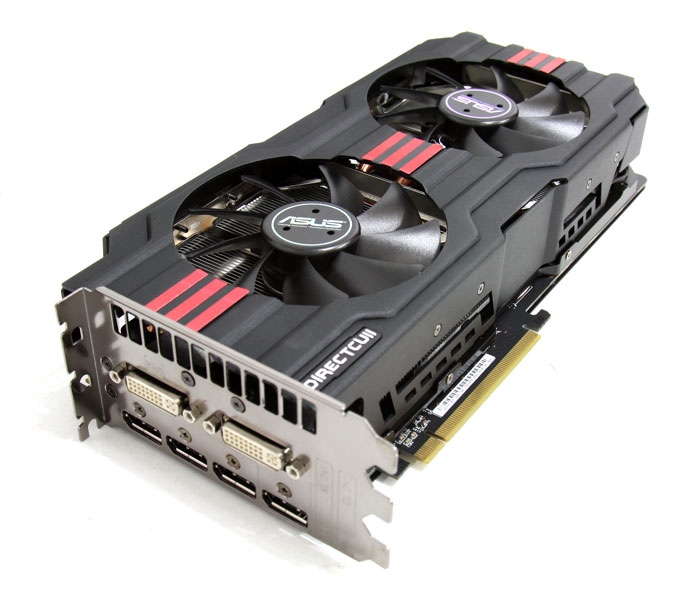Introduction

AMD's entire 28nm GPU line up has been unleashed, the result is obviously the 7000 series products. All the way on top is the 7900 series, armed with a GPU codenamed Tahiti, the release which was received quite positively on the market.
Today in the spotlight we have ASUS, they are releasing several customized 7900 models but today specifically we test their beast, the Lucifer ... well even the Hummer of the R7970 cards. It is the ASUS R7970 DirectCU II -- a three slot wide beast with massive cooling capacity.
The completely customized card comes with voltage measurement points, a 12-phase VRM circuitry with supper alloy caps and chokes as well as a special SAP capacitor added to maximize overclocking headroom, according to Asus.
Including the cooler, this card is three slot wide, the cooling itself uses two 100mm fans sitting on top of a big aluminum heatsink, while most of the PCB is covered with an aluminum heatspreader. The cooler is able to keep the product under 70 Degrees C, and that's under full load and stress without making any real noise.
ASUS claims its design keeps the core 20% cooler than AMDs reference design, which allowed the company to push the Radeon HD 7970 over its reference frequencies. The product as such comes factory overclocked. The GPU will be clocked at 1GHz while the memory will tact in at 1400MHz (5.6Gbps data rate).
There's more though, the HD 7970 DirectCU II Top comes with two DVI outputs (one DVI-I and one DVI-D) as well as with four DisplayPort connectors. In theory this design allows for up to six displays to be connected in Eyefinity mode.
So have a peek at the ASUS Radeon HD 7970 DirectCU II, a product with very nice game performance, a great feature set and a frame buffer that will pop your eyes out as yeah, the graphics card has a cool 3GB GDDR5 graphics memory.
Let's have a look at this Southern Island GPU family member under the codename "Tahiti". Head over to the next page where we'll startup the technology overview first.

